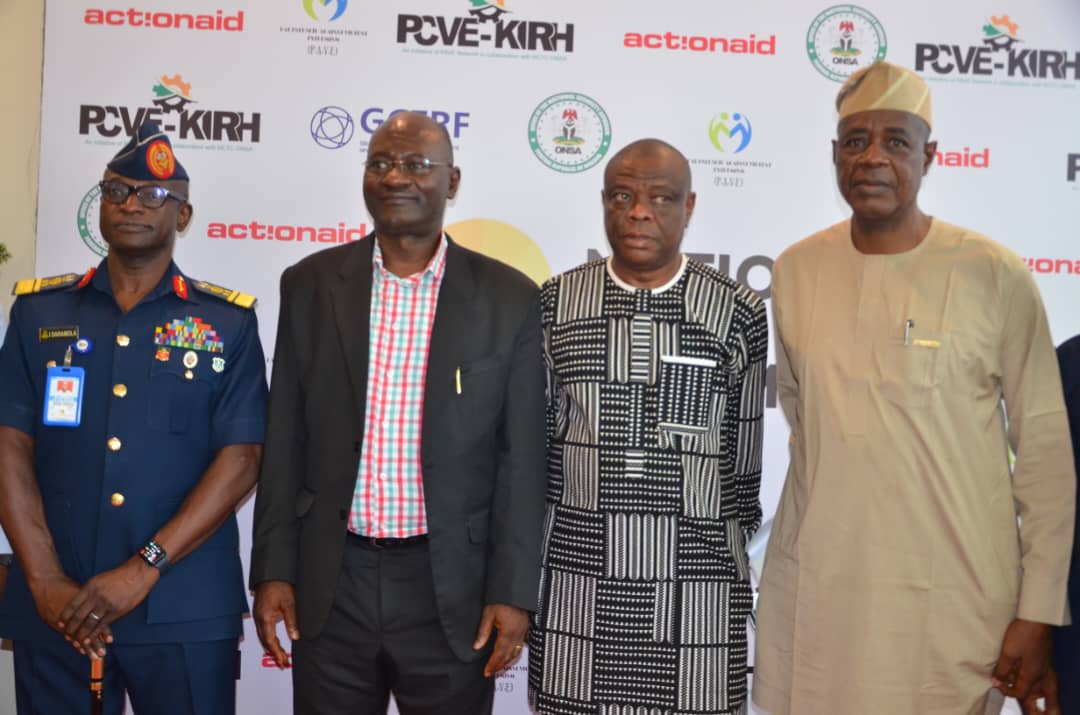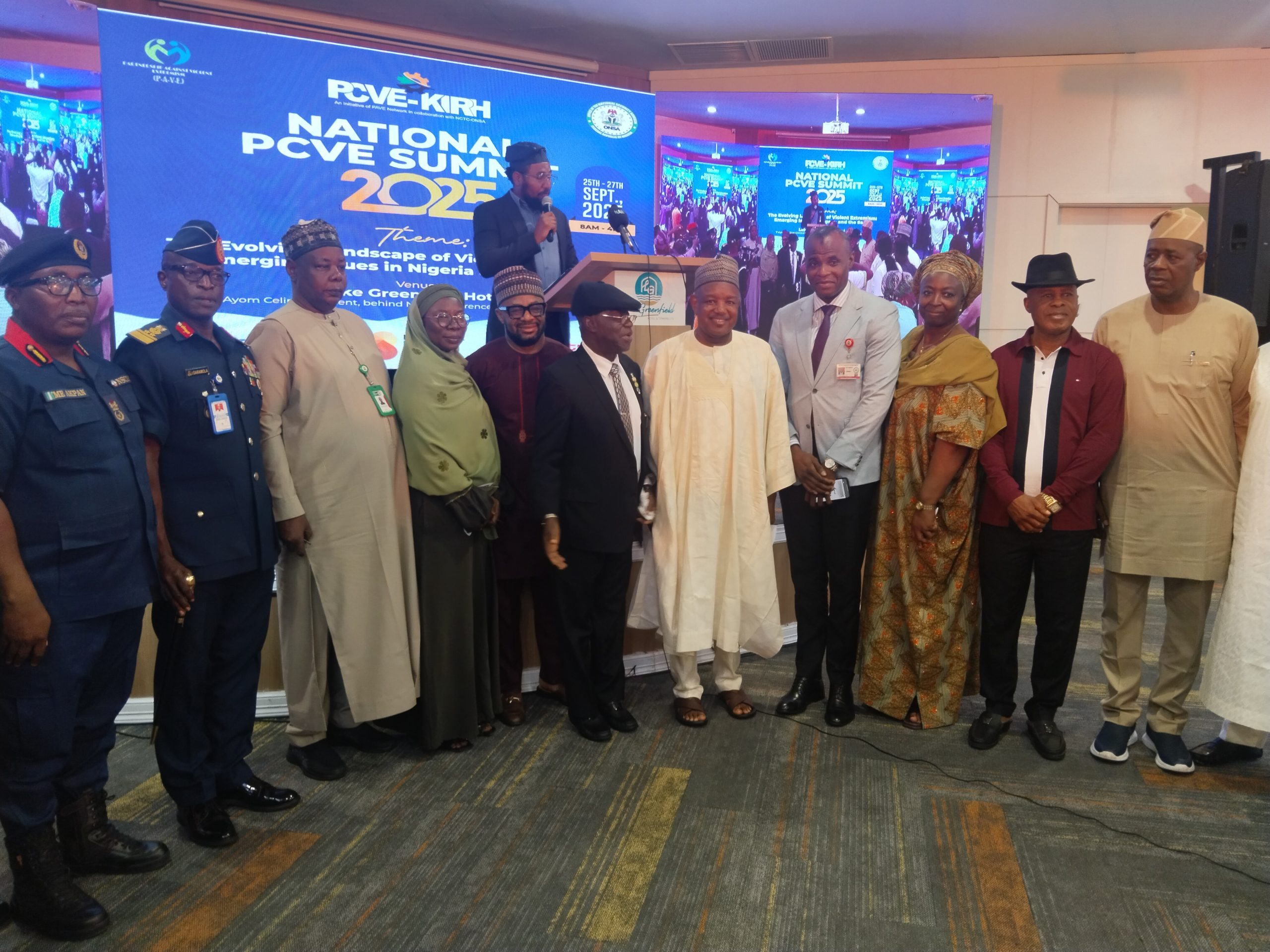Maureen Okpe
The maiden National Summit on Preventing and Countering Violent Extremism (PCVE) advocated the need for a coordinated and inclusive response to Nigeria’s growing security threats.
Stakeholders in the security sector and the general public have been urged to urgently adopt a collaborative, inclusive, and development-driven response to tackle violent extremism.
Read Also: PAVE Network Inaugurates FCT Chapter to Combat Violent Extremism
The three-day summit, was convened by the PCVE Knowledge, Innovation and Resource Hub (KIRH) in partnership with the National Counter Terrorism Centre (NCTC) and the Office of the National Security Adviser (ONSA), in collaboration with Actionaid, and Global Community Engagement and Resilience Fund, (GCERF).

The summit with theme“The Evolving Landscape of Violent Extremism: Emerging Issues in Nigeria and the Sahel,” brought together top security officials, policymakers, development partners, and civil society actors.
In a keynote address delivered by the National Coordinator of the National Counter Terrorism Centre (NCTC), Major General AG Laka, participants were urged to take immediate, practical steps to operationalize Nigeria’s renewed Policy Framework and National Action Plan for Preventing and Countering Violent Extremism (PF-NAP for PCVE).
laka, represented by Commodore Ahmed Abubakar Madawaki stated, threats are becoming more complex, with extremist actors blending criminality with ideology, manipulating grievances, and exploiting digital platforms to recruit and spread propaganda.
He said, “Prevention must be local, contextual, and multi-dimensional. Security responses must be rights-respecting and coordinated, while development, economic inclusion, social services, and governance remain central to long-term solutions.”
In the same vein, Director-General of the Institute for Peace and Conflict Resolution (IPCR), Dr. Joseph Ochogwu, described violent extremism as a “pan-Nigerian threat” that transcends regional, ethnic, and religious boundaries.
He emphasized the importance of a Pan-Nigerian approach rooted in collaboration, integration of strategies, and inclusive governance.
Read Also: Media, Civil Society Align to Prevent Violent Extremism in Nigeria
He warned against working in silos, calling instead for a unified national framework that aligns federal, state, and local government efforts.
“Violent extremism is not a regional issue; it’s a national emergency. The over-militarization of the response ignores the developmental and governance roots of the problem,” Dr. Ochogwu stated.
He highlighted the need to tackle root causes such as poverty, unemployment, corruption, political exclusion, weak institutions, and human rights violations.
Chair, National Steering Committee, PAVE Network, Jaye Gaskia, in his opening remarks, stressed that military operations alone cannot address the menace, given the mobile and adaptive nature of violent extremist groups.
He advocated a whole-of-government and whole-of-society approach that combines security measures with governance reforms, social justice, youth empowerment, and economic opportunities.
According to him, there was a need for urgent reforms in the Almajiri education system, stronger local government autonomy, and community-led peacebuilding initiatives to build resilience.
He also noted the need for strengthened grievance resolution mechanisms to promote reconciliation and to enhance the participation of women and youth in decision-making
Addressing the summit, National Coordinator for the Global Community Engagement and Resilience Fund (GCERF), Ms. Yetunde Adegoke, noted that GCERF has been supporting Nigerian organizations since 2016.
She revealed ongoing efforts to scale PCVE interventions by mainstreaming them into local and state development plans.
Adegoke emphasized that sustainable solutions must go beyond donor funding and look towards private sector involvement and community-driven cooperatives.
“We’re building resilient community cooperatives, especially in the livestock sector, connecting them to value chains and turning them into social enterprises. These cooperatives can fund local PCVE efforts while creating livelihoods, reducing tensions, and promoting peaceful coexistence,” she said.


[…] Read Also: PCVE-KIRH Holds First National Summit, Calls for Pan-Nigerian Approach to Violent Extremism […]